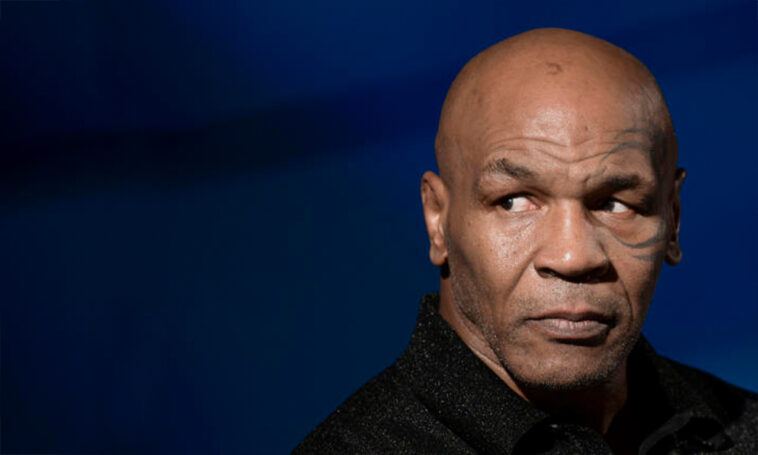Mike Tyson, the legendary former heavyweight boxing champion, has long been a symbol of triumph and tragedy in the sports world. In a recent interview with Loaded magazine, Tyson candidly discussed his past struggles with addiction, his journey toward healing, and how these experiences have shaped his current approach to health and wellness. The 58-year-old boxing icon shared valuable insights into his mental well-being, self-awareness, and even his thoughts on testosterone replacement therapy as part of his ongoing physical and emotional recovery. Tyson’s openness about his challenges has resonated with fans, as he prepares for his highly anticipated boxing match with Jake Paul in November 2024.
Mike Tyson, one of the most iconic athletes of all time, has always lived his life in the spotlight, facing intense highs and deep lows. Known for his ferocity in the ring, Tyson’s personal life has often been marked by struggles with addiction, mental health challenges, and the difficulties of fame. However, in a recent interview with Loaded magazine, Tyson shared a more vulnerable side of himself, offering a glimpse into his journey of self-awareness, redemption, and healing.
Tyson began by reflecting on his past battles with drug addiction and the impact it had on his mental health.
“I still have struggles with my mental well-being but thankfully I have better tools,” Tyson admitted.
He went on to explain how his experiences as a former drug addict have given him a deeper understanding of himself. “I’ve learned a lot over the years from being a former drug addict. I understand my triggers and why I self-sabotage,” Tyson said, highlighting the importance of self-reflection in overcoming his personal challenges.
The Brooklyn native also stressed the significance of honesty in his recovery. “When I’m honest with myself and do that self-inventory, I feel great,” he explained. Tyson’s path to healing has involved not just addressing his addiction but also confronting the deeper emotional and psychological issues that contributed to his struggles. This process of self-inventory, Tyson believes, has been essential in helping him move forward with a healthier mindset.
One of the more profound aspects of Tyson’s reflections was his commentary on accountability. He pointed out that many people tend to shift blame onto others, avoiding the responsibility of confronting their own actions. “I think many people want to blame others for their problems without realizing they are a part of their own story,” Tyson said. This insight into personal accountability reveals Tyson’s belief that change is only possible when individuals are honest with themselves about their past decisions and behaviors. “They can redirect their life at any time, but that’s only possible if you’re honest with yourself about how you got to where you are now.”

Tyson’s openness about mental health struggles is especially important given the pressures he faced throughout his career. As a former champion, the expectations on Tyson were immense, and his mental health was often overshadowed by his fame and success in the boxing ring. However, Tyson’s journey toward self-improvement has been about more than just overcoming addiction. He has also focused on maintaining his overall health, which includes addressing physical issues related to aging.
One aspect of his health journey that Tyson has been vocal about is his use of testosterone replacement therapy. He emphasized that low testosterone levels, which can occur as part of the natural aging process, can have a significant impact on both physical and emotional health. Tyson challenged the stigma around testosterone therapy, noting that it’s not just about improving physical strength. “I think there is this misconception that if men take testosterone it’s because physically there is something wrong with them,” Tyson said. “But from the age of 30, I don’t care how healthy you are, your testosterone levels drop. This affects more than just your physicality, it also affects your mood.”
Tyson advocates for men to embrace testosterone therapy as they age, comparing it to taking daily supplements. “Getting a testosterone plan as you age should be as normal for a man as taking a daily supplement in my opinion, because it does so much to stabilize the body and mind.” Tyson’s endorsement of testosterone replacement reflects his commitment to overall wellness and his willingness to challenge conventional ideas around aging and health.
As Tyson continues to focus on his health, he is also preparing for a major event in his life: a boxing match against YouTuber Jake Paul. The fight, which has been delayed several times, is now set for November 15, 2024, at AT&T Stadium in Arlington, Texas. Fans around the world are eagerly awaiting the match, which will be streamed globally on Netflix. Tyson’s fight with Paul represents not only a return to the ring but also a personal triumph, as it signifies his continued growth and resilience.
Tyson’s willingness to speak openly about his struggles with addiction, mental health, and aging serves as a powerful reminder of the importance of self-awareness and personal growth. His journey from self-sabotage to self-improvement offers hope to those who may be dealing with their own challenges. As Tyson said, “When I’m honest with myself and do that self-inventory, I feel great.” This mindset, combined with his ongoing focus on health, continues to shape the former champion’s life in powerful ways.





Join the Community and Be a Part of the Conversation
You must be logged in or registered to post a comment.